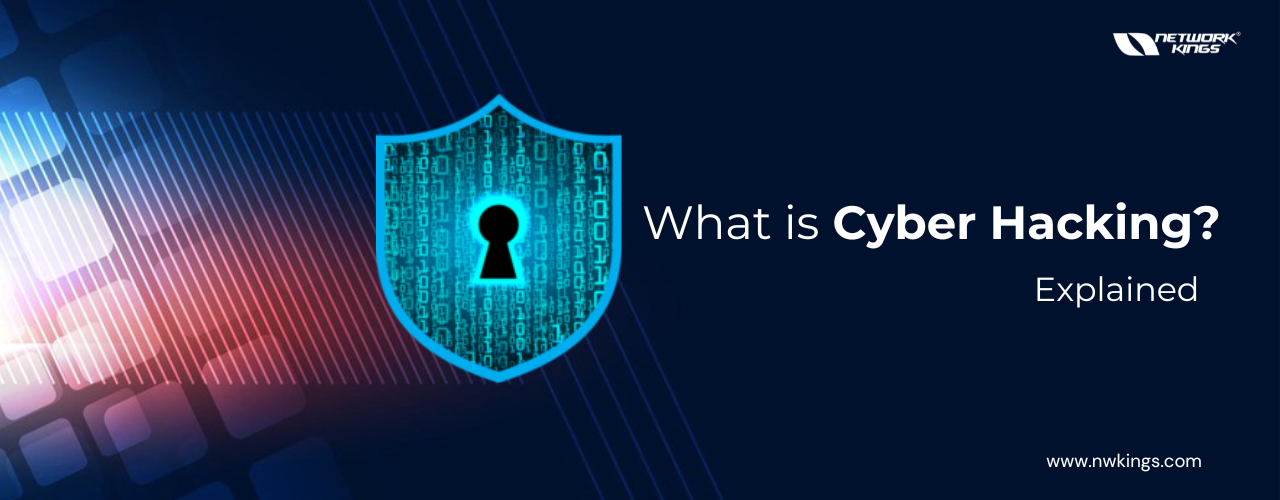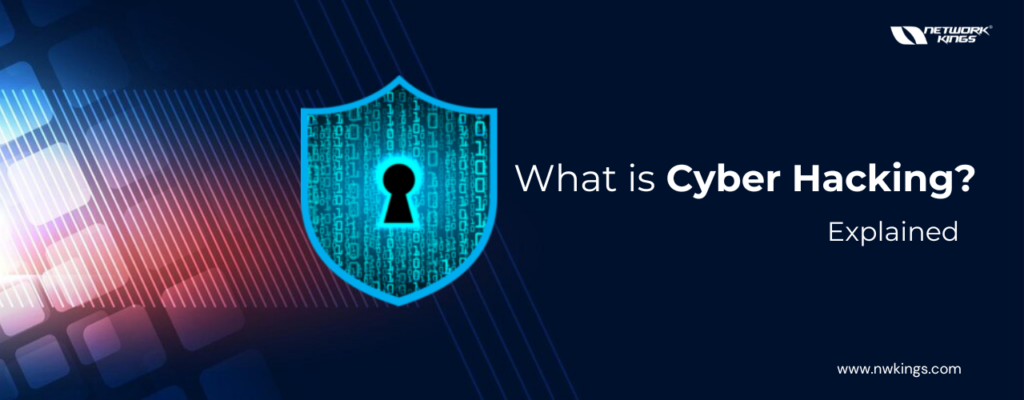
What is cyber hacking? – If you want to know, keep reading the blog till the end. Are you concerned about cyber attacks and online security? Do you want to gain an understanding of what exactly is meant by ‘cyber hacking’? Well, unfortunately for us all, it has become a worrying reality in this increasingly digitally connected world. The use of highly sophisticated tactics means hackers can easily access our data without permission; perpetrate internet fraud, and wreak havoc through malicious activities that affect both individuals as well as organizations alike.
In the following blog post, we will be looking at what defines cyber-hacking and the various methods that hackers utilize to infiltrate systems or networks – plus how best to protect ourselves against such threats so future data breaches are avoided.
Defining What is Cyber Hacking in the Contemporary World
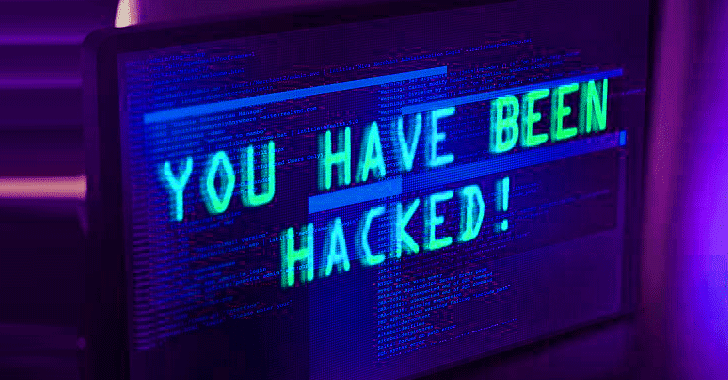
Cyber Hacking has been a major talking point in today’s world. There is some variation when it comes to how exactly we define it though; some may refer to all unauthorized access to computer systems as cyber hacking, while for others it can only mean malicious activity with the aim of gaining something from corrupting or accessing an organization’s data and info without permission.
To put that into wider terms, Cyber Hacking essentially means using programs and technology to break through security measures so information can be taken from a particular system – not always done out of ill will but sometimes just curiosity!
It is worth bearing in mind that cyber hacking isn’t always illegal, depending on the situation and what you are trying to achieve. For example, businesses may hire hackers to carry out penetration testing – this involves attempting to get into their systems so they can spot any weaknesses or potential trouble spots that could be taken advantage of by unauthorized people. Of course, this kind of ethical hacking requires permission from the company concerned and needs strict controls as well as protection measures in place before it can go ahead.
Similarly, ‘white hat’ hackers are those who put their knowledge of cyber-security to use for good and help companies identify any potential issues so they can be fixed before being exploited. On the flipside, black hats go down a more malicious route using their skills to steal confidential data or disrupt networks through virus attacks. The motivation behind such acts is varied; it could range from financial gain (like when ransoms are demanded) up to ideological reasons – like political protests – as well as simply wanting bragging rights amongst fellow hackers.
The amount of damage caused by cybercrime has increased significantly in recent years with numerous reports of large corporations suffering millions worth of losses due to massive downtime or stolen data being sold illegally online. Whether you are someone trying to figure out ways businesses can protect themselves against sophisticated attempts at hacking or just looking for some basic tips that’ll keep your personal information safe; learning about how these activities occur will ensure you don’t become easy prey for criminals!
The World of Cyber Attacks: A Brief Overview

Cyber assaults are a genuine and continuously developing risk to online security. It appears as though each day there is some new type of cyber attack being revealed in the news. As our reality has gotten progressively subject to computerized innovation, the danger of digital offenders focusing on people, organizations, and whole systems has likewise developed exponentially. To understand better what cyber hacking is, we initially need to take a gander at various sorts of cyber attacks that exist. By its most fundamental definition; a cyber attack is any endeavor made with the end goal of gaining unapproved access to PC frameworks or information.
When it comes to cyber attacks, there are many types of malicious activity out there. One quite common one is called malware or malicious software which infiltrates computers without users realizing and can do anything from stealing confidential information to deleting data – all with no warning! Another form of attack involves DDoS (distributed denial-of-service) techniques used by hackers where they send huge numbers of requests to servers until the system falls over – how convenient for them.
And finally, some nasty hacker might even try to exploit vulnerabilities in a piece of code that gives them access remotely so what could be worse!?
Perhaps even more worrying are the so-called “Zero Day Attacks” where hackers use previously unknown weaknesses in computer systems to their advantage. On these occasions, it can be incredibly difficult for organizations to protect themselves from the attack before it leads to major damage or disruption since there is generally no way of knowing about the vulnerability until malicious actors have already abused it.
Luckily, there are measures that both individuals and organizations can take to safeguard themselves against many kinds of cyber attacks such as installing antivirus software, employing strong passwords and two-factor authentication, frequently patching any existing software vulnerabilities, and encrypting sensitive data.
Understanding Online Security and Its Importance

When you are using the internet, security should always be at the forefront of your mind. So what exactly is online safety and why do we need to all know about it? Cyber hacking has become a real risk in our increasingly digitized world, so we must be alert to any potential threats posed by technologies and take action to protect ourselves from malicious hackers.
Speaking, online security means guarding our identities, keeping confidential details private, and ensuring that computers or other digital devices aren’t invaded or compromised by dodgy software programs or meddlesome criminals – don’t let them get away with stealing sensitive information!
It is not just about staying safe online; we also need to make sure that our passwords are secure as well. Nobody should be able to guess them and gain access without us knowing, otherwise, there could be serious consequences for all of us – including those who would use legitimate methods such as data mining techniques to extract confidential information from people’s computers without their knowledge or permission.
This is why it is so important that we choose strong passwords that aren’t easy to crack, ensuring none of our privacy can easily fall into the wrong hands. But how do you go about doing this? Well, firstly you could consider using a combination of letters (both uppercase and lowercase), numbers, and even symbols if possible in your password creation process – these will help protect any personal accounts more efficiently than one made up entirely of characters alone!
Realizing the importance of keeping your computer secure and safeguarding personal data is an essential step if you don’t want to find yourself having someone pilfering your identity or snooping on private conversations. How can we be sure our information stays out of the wrong hands? What measures could we take to keep hackers from breaching our privacy? These are questions worth pondering as part of a roadmap for staying safe online.
It is essential to protect yourself from cyber hackers and there are a few key steps you can take.
Firstly, make sure all your computing devices have up-to-date anti-virus software installed. Secondly, ensure that each of the programs on your device is running the latest version available. Thirdly, regularly update your operating system as updates tend to include security patches that help prevent malicious attackers from trying to access data stored or passing through it.
On top of that, be mindful about what downloads you accept from websites – should we trust them? Then when an email pops into our inboxes if its sender isn’t recognisable then don’t open it – better safe than sorry! Additionally, never share passwords with anyone else under any circumstances; everybody needs their privacy respected after all!
Last but not least, keep track of anything untoward happening like strange charges going out against your account or odd messages unexpectedly appearing in communications threads because these could indicate a hacker has infiltrated something without us realizing yet.
Although these tips may seem basic, adhering to them can provide better protection against cyber criminals as well as peace of mind when surfing the web. At the same time, it is also worth being aware of how large organizations such as banks and government agencies guard their data – like encryption technologies or firewalls created to stop unauthorized access. In most cases, they use dedicated software developed especially for the secure keeping of info.
A comprehension of these techniques will give you a greater awareness of how online security works so that you can apply similar tactics at home or in work settings. In conclusion, digital safety is no longer something merely ‘tech savvy’ people need to be concerned with but instead, everybody who employs tech today – which essentially means everyone! Knowing all there is about cyber security makes it easier for us to defend ourselves from malicious activities while still reaping all the advantages present-day technology offers us!
A Look into Hacker Tactics and Techniques

Cyber Hacking is a complicated activity that involves several tactics and strategies to get unauthorized access to computer systems, networks, and databases. The purpose of a hacker usually revolves around stealing, destroying, or manipulating data stored in these methods. To achieve this they utilize various tools, techniques as well as vulnerabilities available on the web naturally.
The most prevalent hack is referred to as ‘social engineering’. This includes accessing private intel like passwords and usernames by using social engineering tricks such as designing counterfeit sites plus emails with malicious material inside them. Have you ever encountered any dubious websites before? What would be your reaction if someone asked for credentials through an email?
Hackers can also employ malicious software, commonly known as malware or ransomware. This kind of program is specifically designed to install itself on a user’s system without them knowing about it and spread its influence throughout the entire network. Such assaults are especially hazardous due to their potential to cause tremendous harm to an organization’s IT infrastructure while stealing sensitive financial data at the same time.
Another approach that hackers utilize is called a ‘denial-of-service attack’ (DoS). In this case, criminals would target web servers by flooding them with requests until they overload themselves, thus making it impossible for legitimate users to access these sites any longer. Of course, such tactics allow attackers to disrupt services and take control over systems which could have devastating consequences if nothing was done against those actions fast enough!
Denial of Service (DoS) attacks can be incredibly damaging to businesses, disrupting services and leading customers away because they are unable to access the website or other services. In addition to this hackers may use ‘exploits’ that take advantage of existing security vulnerabilities in software and hardware; these enable them to gain control over a system granting them access to any data stored inside it.
Exploits frequently target popular programs meaning multiple computers could be affected at once – skyrocketing their potential risk levels. To summarise, cyber hacking involves various tactics all working towards gaining unauthorized entry into computer systems, networks, and databases with serious repercussions for companies if successful.
Data Breach: The Unforeseen Consequences
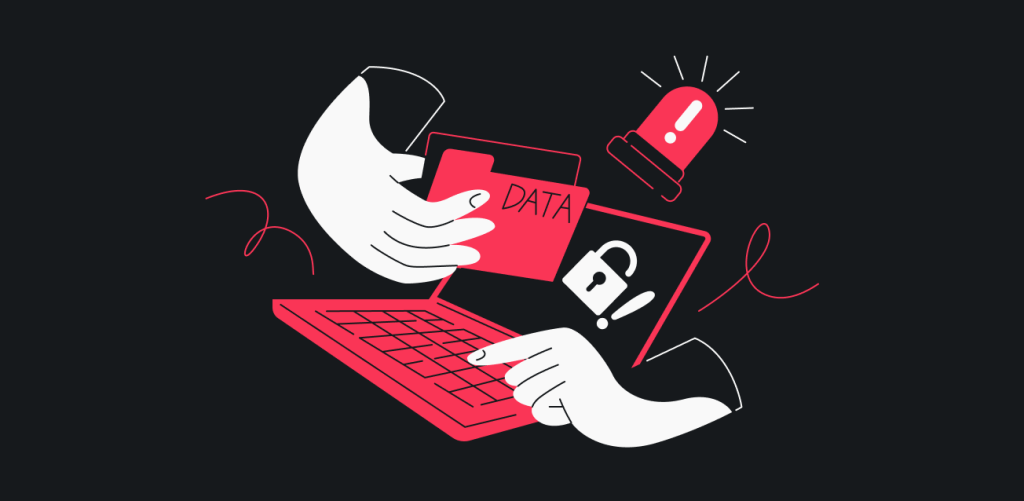
Cyberhacking is becoming an increasingly concerning problem with potential consequences that could be difficult to predict. One such impact of cyber hacking is data breach, when criminals get into someone’s private accounts or documents and illegally take away their personal information – this can include anything from name, address, financial details, and even medical records.
It is very worrying as it puts people at risk for identity theft which can have long-term effects; how safe are your online accounts? Individuals must be aware of the potential risks associated with data protection; anyone who has access to a computer should take steps to ensure their machine – and any information stored on it – remains secure. Data breaches can have serious consequences for those affected by them.
For example, stolen details could be used for fraudulent purposes – such as buying goods online using another person’s credit card info or opening bank accounts in someone else’s name without their knowledge. How easy would it be if someone got hold of your data? It’s an alarming thought!
Such activities are illegal and anyone caught doing so can be prosecuted. Plus, if sensitive personal or business info gets into the wrong hands then it could lead to embarrassment or financial loss depending on what data has been taken. Take for example an organisation that experiences a security breach – they have a legal responsibility to let those affected know as well as inform them about how they should protect themselves against any further harm. I mean, just imagine if someone got their hands on your personal information without permission. You wouldn’t want that happening, would you?!
In addition to the financial hit, many people feel violated when someone else has access to their secret data without permission – it can make them feel like their privacy is being breached and they have been betrayed. It might also lead to a lot of emotional distress for some folks who experience identity theft or find out that their private affairs were made public unknowingly or without approval; not only do they bear the brunt financially but emotionally too.
Another problem caused by data breaches is potential reputational damage; those affected may be subject to adverse press coverage as news outlets get hold of such stories which could leave these victims feeling exposed once more. In this case, several individuals may choose legal action against whoever was responsible to try and claim damages from any losses suffered due to criminal activity.
The Increasing Threat of Internet Fraud
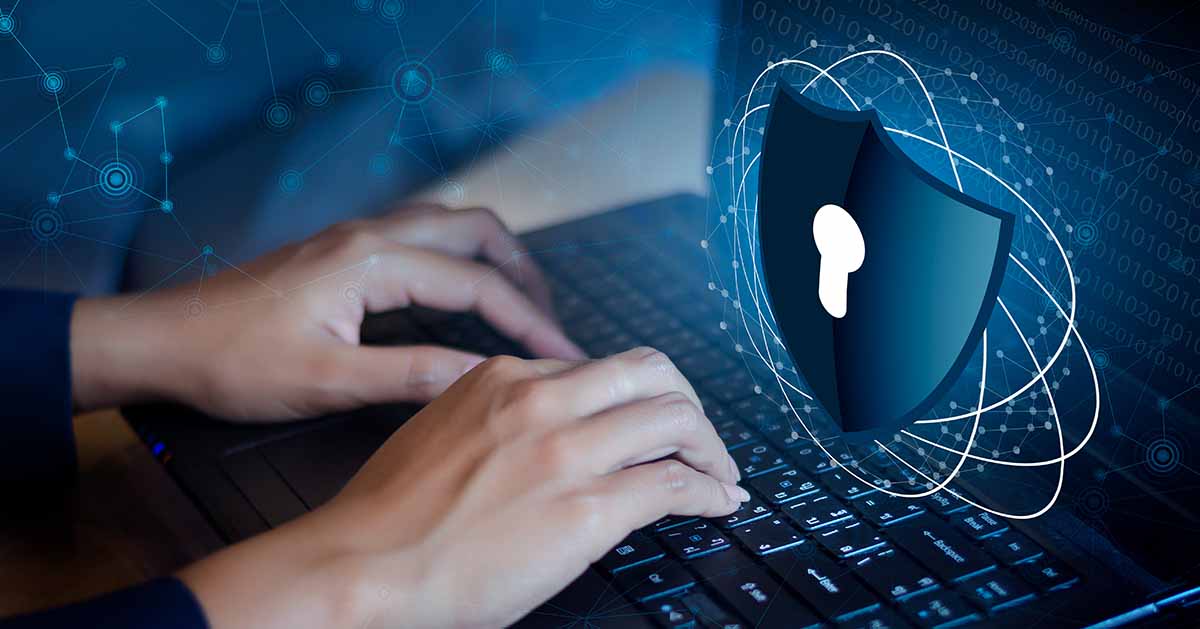
Many people view Cyber Hacking as something that only happens in films and comic books, but the truth is much more concerning – online fraud is a rapidly growing menace with real-life consequences. We hear plenty of stories about credit card scams, identity theft, and malicious software wreaking havoc on people’s finances; it is not an uncommon occurrence these days, unfortunately. The vastness of the internet makes it incredibly appealing to unscrupulous individuals seeking easy money. What can we do to protect ourselves?
Right at the heart of this difficulty lies the fact that cyber security is still an issue for a lot of organizations, ranging from small to large ones. Insecure networks are particularly prone to being targeted by hackers who want to take advantage of those vulnerabilities. Even secure-looking systems can be breached if adequate steps aren’t taken to keep them safe – something which most companies sadly don’t do properly enough. The result? Data breaches or other activities stemming from digital crime could lead businesses and folks alike to suffer financial costs or damage their reputation.
Another major issue with cyber fraud and hacking is phishing – attempts by criminals to gain access to sensitive information such as passwords or bank details via email campaigns or malicious software downloads.
Phishing has become more sophisticated in recent years, so much so that criminals can mimic popular websites and services misleadingly appealing to unsuspecting users into giving out their data. Even if you think you are safe due to up-to-date antivirus protection, this might not be true since certain sorts of phishing assaults can bypass your defenses altogether.
But there’s still hope! We can all take measures for ourselves and collectively against internet crime threats; like regularly checking our financial accounts vigilantly for any suspicious activity; dodging clicking on hyperlinks sent from unrecognized sources; keeping our programs plus anti-virus utilities updated constantly; changing passwords often enough; directly reporting dubious webpages or emails without delay when noticed; understanding common scams well enough beforehand.
Be cautious about two-factor authentication at any time possible – these precautions will certainly guarantee we remain secure online regardless of how irresistible fraudulent activities may seem!
Protecting Yourself from Cyber Hacking

When it comes to cybersecurity, one of the major worries is cyber hacking. It can be explained as a way whereby malicious code gets into your computer systems and networks so that valuable information or assets are accessed. Everyone – from organizations right down to individuals- needs to know how they can protect themselves against this kind of attack. What do you have in place now? What sort of measures could you take? So, let us begin by getting an idea about what exactly cyber hacking involves and what we should try doing for protection purposes.
Cyber hackers are usually driven by financial gain, and they will often employ cutting-edge instruments and procedures to get personal details like bank account numbers, passwords, social security information, credit card info – and more. They may also target organizations to steal confidential data or infect computers with malicious software or ransomware. It is incredibly important that you ensure all your gadgets remain secure by using strong passphrases and only downloading apps from reputable sources.
You should likewise abstain from clicking on unfamiliar links or attachments in emails/texts that could contain insidious code too. Also, be wary when using public Wi-Fi networks for activities such as Internet banking or shopping online since these connections can easily be infiltrated by cyber criminals who want to tap into unsecured systems!
Staying up-to-date with current trends in cybersecurity technology is another great way of shielding yourself against potential cyber hacking attacks. Making sure your antivirus program remains updated is essential considering new threats continuously emerge that older versions might not detect until it is too late; aside from this always create a backup copy of valuable data so even if any key knowledge gets stolen due to an act carried out by illegal hackers – you still have another method at retrieving it back again!
Case Study: High-Profile Cyber Hacking Incidents
Cyberhacking is a continually increasing security worry for businesses and governments worldwide. Every single firm has the hazard of having its systems infiltrated by malicious actors, plus new strategies are being created all the time to help them remain ahead of potential issues. Nevertheless, due to recent stories including highly publicized data breaches as well as cyber offenses it is becoming increasingly important to grasp what exactly cyber hacking is and why it can be such an enormous risk.
The 2014 attack on Sony Pictures Entertainment provides us with a firsthand look at how cyber hacks take place. We can gain immense insight into what precautions organizations should be taking to keep their data secure. It was no ordinary breach, this lot of hackers managed to get hold of some seriously confidential stuff – emails, upcoming film releases, social security numbers, and financial information.
The consequences were heavy; not only did the company suffer reputation damage but also incurred major monetary losses when all that sensitive info got posted online for everyone to see! This serves as an important reminder of why it’s so imperative in today’s world for companies (and individuals) to need robust cybersecurity systems set up to protect themselves from these kinds of malicious attacks.
It is pretty clear from the example of 2017, where hackers stole over $60 million from a Bangladesh Bank account that was held with the Federal Reserve Bank of New York. In this particular incident, they managed to exploit vulnerabilities in an online transfer system and sent requests for money to other banks without any authentication or verification details associated with them. Thankfully enough most banks took notice before it was too late and returned the funds; still, such cases exhibit how vulnerable financial systems can be if proper security is not implemented efficiently.
This brings us back to our original point – cyber hacking has far-reaching impacts than people may think at first sight! Not only huge theft but even smaller operations like ransomware attacks or phishing attempts are capable of causing extensive disruption as well as a loss of reputation or data leakage… no one would want these consequences anyway.
Thus, understanding what comprises ‘hacking’ is paramount for all organizations so that protective measures against such assaults can be taken into consideration; ranging from strategizing powerful cybersecurity policies or practices within organizations itself right up to solid communication between stakeholders (like customers).
Common Myths About Cyber Attack and Security
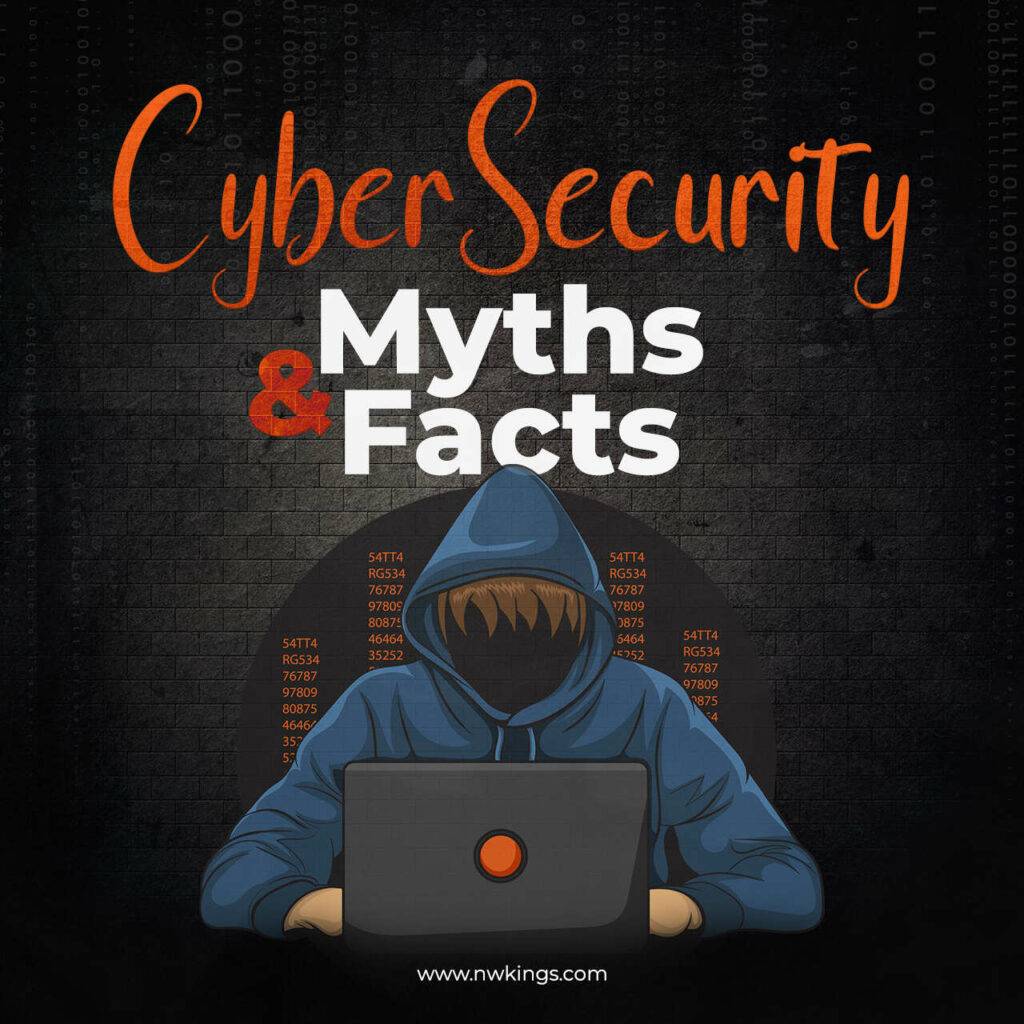
Cyber attacks and security are two essential considerations in the digital world we inhabit today. Sadly, quite a few falsehoods are circulating about these activities which can lead to misconceptions and ultimately inadequate cyber defenses being implemented. A prime example of this is people believing that cyber hacking hardly ever happens or only makes an impact on large enterprises; nothing could be further from the truth – any individual or small business with an online presence will be vulnerable if they fail to put protective measures into place.
Another inaccurate supposition is that you need advanced technical competency to hack computers or networks. Not necessarily: although having those skills helps, it isn’t always necessary depending on what kind of attack someone wishes to launch.
It is a fact that having certain technical skills can be an advantage to hackers, but it is not always essential. In some cases, they may make use of system vulnerabilities or poorly set up security settings. Nobody enjoys pondering the prospect of being hacked and what could happen as a result, however, this cannot be overlooked either.
Both people and business entities must put in place strong safety procedures such as encryption technologies, antivirus software plus firewalls; regular data updates together with backups; user access control processes; multi-factor authentication when possible, and staff training sessions on occasion. How well does your company measure up? What steps are you taking personally to protect yourself online?
Preventing hackers from gaining access to private information or taking control of a system for their gain is achievable if certain steps are followed. Don’t be fooled by the misconception that it is a case of mission impossible once you have been hacked – there’s still plenty that can be done!
You could enlist experienced professionals like solicitors and IT forensics teams who have the in-depth understanding to investigate the source of an attack and potentially receive restitution from those responsible, thereby giving victims some sense that justice will eventually come about.
Future Perspectives: The Evolving Landscape of Cyber Hacking

The cyber hacking world is an ever-evolving landscape for a good cause. As technology progresses it presents more opportunities to access data that was once kept hidden from the majority of people. Looking forward we can only imagine what could be achieved with further development in this field – so before getting too ahead of ourselves let us focus on better understanding exactly what Cyber Hacking entails and how it can help us gain control over confidential information.
At the heart of it, cyber hacking is all about gaining access to a system or network without permission for malicious reasons. It could be anything from taking personal information like passwords, credit card numbers, and bank account details right up to devastating an entire network by using malware or ransomware.
Cybercriminals make use of complex techniques such as phishing emails to get into systems without letting those responsible for security within the organization know what is going on. With technology continually advancing and fresh ways of online attacks being devised, organizations must stay vigilant if they are hoping to stay safe.
Gone are the days of relying solely on antivirus software for cybersecurity; nowadays companies must pull out all the stops to ensure their systems remain safe from attack, such as deploying advanced firewalls and robust authentication protocols. What’s more, investing in employee training programs that educate staff about sound security procedures could help prevent a multitude of potential issues before they go too far.
For what lies ahead when it comes to cybercrime tactics? It seems that AI and ML will become increasingly commonplace methods employed by hackers who want to gain access underhand – they will be able to use these technologies faster than ever before making huge amounts of data available almost immediately via automated processes instead of having to do things manually, thus giving them substantially higher opportunity levels with regards attacking vulnerable targets..
As this technology becomes widespread among malicious parties organizations need to get one step ahead or face potentially disastrous repercussions going forward if left unprepared.
Wrapping Up!
In conclusion, cyber hacking is a huge issue in this digital age we live in. Hackers are always finding new ways to infiltrate our systems and access our data for their malicious intent. Some of the most popular methods include phishing scams, malware attacks, and social engineering – all of which can be incredibly difficult to counteract if you are not paying attention!
This makes it essential that we stay up-to-date on hacker tactics to best protect ourselves against data breaches or internet fraud. Ultimately, only by staying alert can we hope to defend ourselves from such malevolent acts online.
Are you looking to get your career in cybersecurity started? We have got just what you need with our Cyber Security Master Programme. With a comprehensive curriculum, we can give you the knowledge and skills that will set the stage for success in this fast-growing field.
Our program provides an invaluable foundation of both technical understanding and organizational savvy which is applicable across many industries – or specialize further by focusing on digital forensics or malware analysis. Whatever route fits best, there are plenty of job options awaiting when it comes time to graduate! So don’t wait any longer; take action today and dive into this new world with us at the Cyber Security Master Programme!
Happy Learning!

